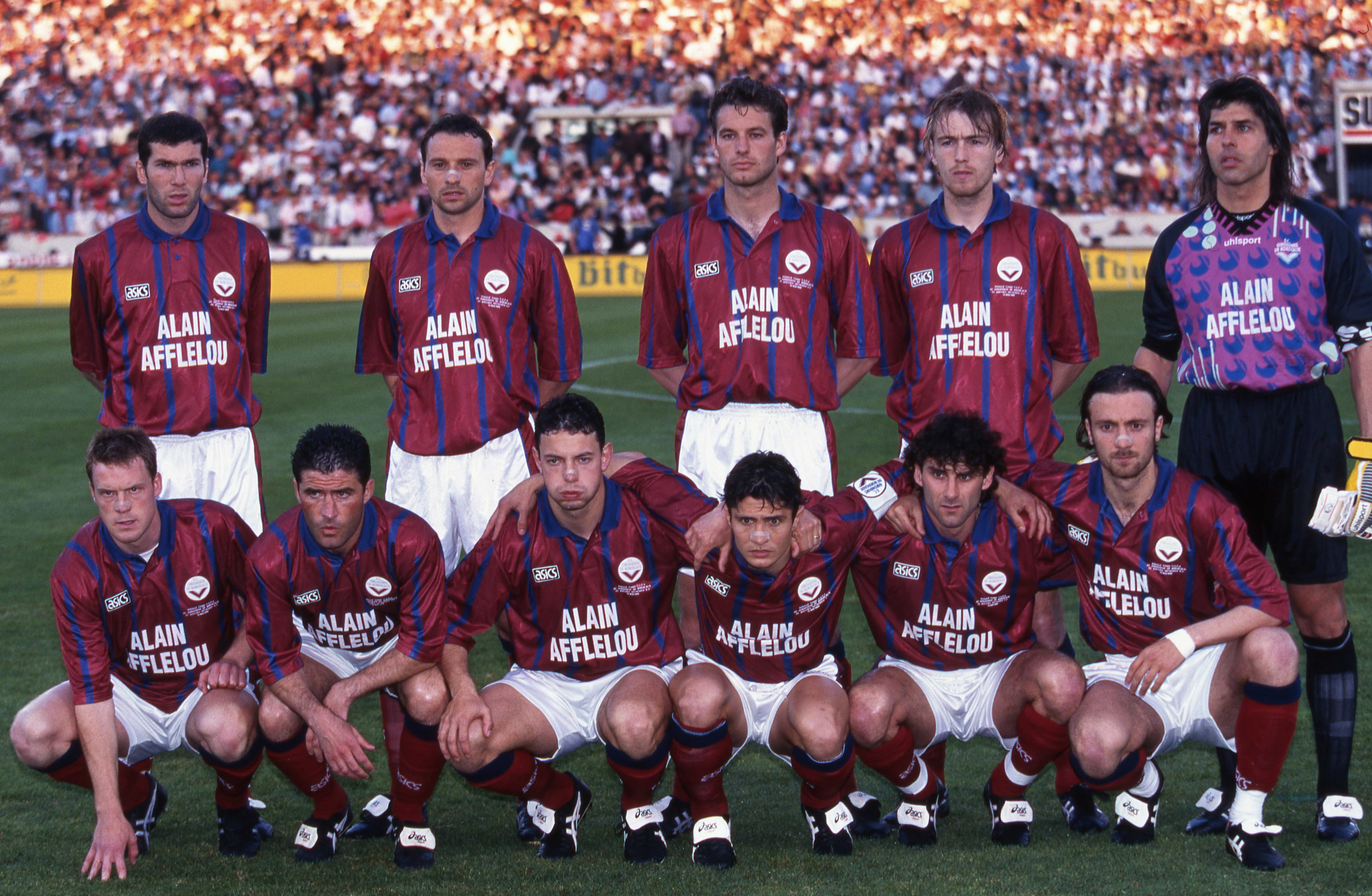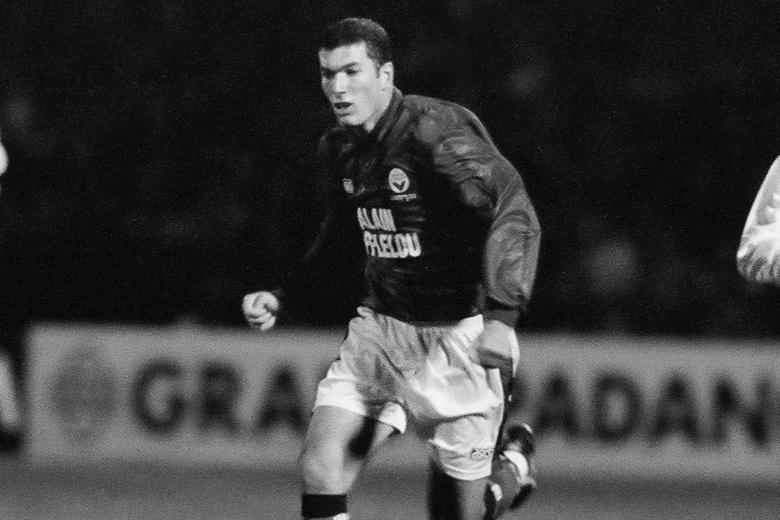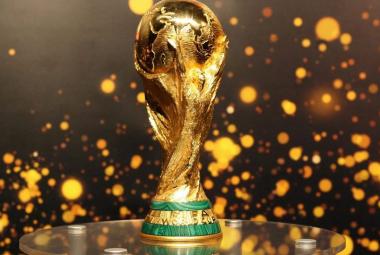During a tough RMC Sport interview about the post of coach of the France team, the former president of the French Football Federation (FFF), Nöel Le Graët, had some inappropriate words to say the least about the ambitions of Zinédine Zidane in this position. By declaring to have "nothing to shake" to know if Zinedine Zidane would become coach of Brazil. "I wouldn't even have taken him on the phone." This resulted in a string of criticism in France and even abroad, notably at Real Madrid in Spain.
To talk about Zinédine Zidane, I can't help but tell myself a little. And yet, if I love the "coco" report as we say in the jargon of the trade, I often feel very uncomfortable in this exercise which consists of talking about myself. And, for my autobiography, we will have to wait a long time. With the news, I could not help but evoke my memories of the Girondins de Bordeaux. Instead of adding to the thousands of other people who very rightly disapproved of the behavior of Noël Le Graët on the RMC Sport antenna about Zinedine Zidane, I prefer to talk about these chances of life that made and cross my path with that of Zinedine Zidane. In short, to talk about "Zizou" who, after Pelé, is an integral part of those rare footballers in the world for whom I have the greatest sympathy and admiration. For their exceptional talent, but also their humanity and their savoir-vivre.
On November 2, 1994, the plane on which I was traveling landed at Bordeaux-Mérignac airport. After that I made a transit and a change at Brussels airport in Belgium. I was welcomed by Arlette Akam-Turlet, the Secretary in charge of Reuters Fellows at the University of Bordeaux 3 Michel de Montaigne. “You can be proud to be here. There are many called and very few chosen,” she told me just after the presentations. I will always remember it, because I was surprised to hear it and my reaction was not to say a word. Then we talked about other things. I had bet with colleagues on this Reuters Scholarship that I discovered in an issue of West Africa Magazine (Author's note: a magazine published by Kaye Whiteman, based in London and devoted to Africa) for which I was the first correspondent in Benin Republic, returning from Lagos to Nigeria as I often did on weekends. And I had won my bet. It is true that I could be proud of it, but not more than that. For a very long time, boasting or getting the big head, as they say, was no longer a disease that I could still catch. I had managed to win my scholarship without even having reached the age of 28 necessary for this purpose before the proclamation of the results. But I had more than the minimum of five years of experience required by the Thomson Reuters Foundation. I even had two more, professionally speaking.
This is how I landed at the University of Bordeaux 3 Michel de Montaigne, as a Reuters Fellow at the Center for Media Studies (CEM) of Professor André-Jean Tudesq (1927-2009) with Professor Philippe Rouyer as Director of Studies. My parents in the village would gladly and cheerfully say without batting an eyelid that it was by the grace of God, of the Ancestors' spirits and of Benin Republic's Voodoo that I won the bet made with my colleagues from Cotonou. Because I was hardly the first on the list, but the second, in truth. And while the first was nowhere to be found, the Reuters Foundation had to fetch the second, which was me. And that's how the Voodoo of Benin Republic was able to intervene in this whole story, my parents from the village would say.
To put the context of this situation, Algeria at war with the Front islamique du salut (FIS) (Islamic Salvation Front ) and the first, who was my Algerian colleague Areski from the newspaper Al Watan (Author's note: if anyone knows him, he could ask to contact me again) had already fled his country. For death threats. Exceptionally for this academic year 1994-1995, we were therefore two Reuters Fellows for French speaking Africa.
To devote myself to my biographical essay on the Life and Death of President Samuel Doe of Liberia and my other journalistic activities, I settled in Talence, but not on the University Campus. The administration having estimated that we Reuters Fellows had enough means to rent in town. I found myself at the Stud'Hôtel in Talence, a kind of Studio and Hotel at the same time. By the way, like my illustrious predecessor René Maran from Martinique, although originally from Guyana, the author of Batouala, landing from his island a century earlier than me to attend the "Petit Lycée" in Talence, in Gironde in 1894.
It's not just journalism that leads to everything...
Many find it difficult today to imagine me sowing panic in the opposing attacks with my only left foot in the stadiums of North-West of Benin Republic. Unless one discovers my shins whose scars left by repeated injuries speak volumes to wonder. But that is to forget that the “La Flèche Noire” team from Tanguiéta where I was born was one of the most famous in Benin Republic, ex-Dahomey in the Regional Championship, in particular the “Jeux du Nord” (Northern Games). It is also to forget that the Saint-Jean de Dieu Hospital has always been run by Italians and that many doctors who passed by were players in Italy and sometimes in higher divisions. Finally, it is to forget that all the equipment of the team "La Flèche Noire" of Tanguiéta was kept in our house (balls, jerseys, nets, etc.) under the responsibility of our great Cousin Jean-Baptiste Nama, alias "Born Thin” (Author's note: he became a Gendarme and ended his career as manager of the civil prison in Natitingou) and that my brother who precedes me still has the nickname “Kopa”. (Author's note: in memory of Raymond Kopaszewski, known as Raymond Kopa (Born October 13, 1931 in Nœux-les-Mines and died March 3, 2017 in Angers, France). To the point where, outside the family circle, few people Tanguiéta know the real first names of the man who was so nicknamed. He was so famous in football that to look for the family home, you only have to ask Kopa. Kopa was the best of us all, just like Francis Alberto Teiga (former player of Pendjari FC of Tanguiéta) will currently in turn be the best of all among his children.
Like all my brothers, I played football and much earlier than them. Except that I never managed to play with the right foot. But I managed, as in everything I undertake, to play with this single left foot to impose myself in all the school teams from CM2 to the Public Primary School Center of Tanguiéta to the College of Tanguiéta where I decided to choose between football and studies. Before therefore definitively stopping football, to the great displeasure of our Yoruba Supporters and other Sponsors who had come from Nigeria but had been living in the region for a long time, a Professor of physical education and sports had already told me: “Guy, you have a future in football”. This on the Natitingou departmental football stadium where the selection of the General Education College (CEG) of Tanguiéta disputed the Departmental School Championship with the CEG of Natitingou in 1982.
If I became a journalist, I owe it to my great passion for football during my adolescence, which led me to the Sports Chronicle from the age of 15 at the CEG of Tanguiéta, and in all the other colleges through which I passed in Benin Republic even before studies of Journalism strictly speaking. Moreover, it was the journalist Dele Giwa of Newswatch magazine in Nigeria, murdered by parcel bomb in 1986 because he was too much of a nuisance, who was my model in this field. From the CEG Père Aupiais in Cotonou to the CEG in Natitingou via the CEG in Savalou. It's not just journalism that leads to everything... Sport also leads to everything... Provided you get out of it. To paraphrase Jules Janin's famous formula: “Journalism leads to everything, provided you get out of it”.
I no longer remember against which team the Girondins de Bordeaux which had already been my favorite team since Africa solely because of the presence of Jean Tigana. Still, that day, in the Stud’Hôtel lounge where we gathered to watch the matches and comment on them, I exclaimed: “this guy has a future”. And it was the first time that I saw and discovered the one whose name I will learn later is Zinedine Zidane. What struck me above all was the quality of his left foot with which he played as well as his right foot. If I remember correctly, he was a midfielder in his day. And his generosity on the pitch, which made him the team's metronome, foreshadowed what he would become much later.
In this Stud’Hotel where most of the students or researchers from different countries of the world resided, the lounge was their meeting place par excellence. They often gathered there to watch television with a few bottles of beer or wine at their feet, and this gave these reunions a real festive atmosphere. Especially when it was a football game that involved the players of the local club, whether it was French Ligue 1 or international matches.
Zinédine Zidane, Bixente Lizarazu, Christophe Dugarry and the Girondins de Bordeaux…

At the Girondins de Bordeaux, I didn't just discover Zinédine Zidane, but a formidable trio. In Cotonou, in the newspaper La Gazette du Golfe where I officiated, we had an eminently sociopolitical and satirical column called: “La Galerie du Trio Impossible” (“The Impossible Trio Gallery“). And it didn't take me too long to think about it to baptize, in my turn, the "Liza-Zizou-Duga" trio, as the "Indomitable Trio" which was also fervently called the "magic triangle" "Liza-Zizou -Duga” or the “Bordeaux triangle”. So magical were these three for whoever knew them in his time. And the game they played made them executioners of opposing attacks, with a technical quality that was a pleasure to watch them in the stadiums.
It turned out that his trainer Rolland Courbis, was from Marseille like him. And it was he who gave him his nickname "Zizou" which has become legendary. If I noticed "Zizou" very quickly, it was first and foremost by his position on the left wing, the one where I played until the day when I suddenly decided to stop everything. Moreover, the most anthological goal of was not that of the header in the World Cup final won by Les Bleus in 1998 and the "Indomitable Trio". It was rather the one scored during the round of 16 of the UEFA Cup, from forty meters and with the left foot against Betis Sevilla who qualified the Girondins de Bordeaux in 1995.
Hence, when the rumor which mentioned the possibility of their departure from the Girondins de Bordeaux leaked and rustled, the supporters of the team were worried and the public of Bordeaux wondered about the veracity or not of this affair. Radio France Bordeaux-Gironde wanted to know more. And, we had to go to Parc Lescure to inquire with those concerned. The editorial staff being on vacation in the summer of 1995, it happened to be a colleague (Author's note: please contact me in the event of a relationship with her, because I have since lost sight of her...) and I put on this report. The duo that I formed with my colleague not only had the privilege of interviewing the “Indomitable Trio”. We also had to interview my compatriot Me Robert Dossou, several times Minister and President of the Constitutional Court of Benin Republic, at the end of the conference organized at the International School of La Francophonie (Ecole internationale de la Francophonie) on democratic processes in Africa. And, exclusively, Alain Juppé, former Mayor of Bordeaux appointed Prime Minister by President Jacques Chirac for his first official visit to his stronghold of Bordeaux. But it was also there, in Bordeaux, and more precisely in Sud Ouest, that I met Pierre Cherruau, the father, who put me in contact with Pierre Cherruau, the son, and with whom I experienced the greatest fraternity until fateful day when this French writer and journalist – but more African than many Africans – friend, colleague and brother in all respects, left us suddenly on August 19, 2018 in Bordeaux, the very day before his forty-ninth birthday. We had talked for a long time two weeks before and during my trip to Ostia Antica in Rome and the tragedy occurred the very day I returned from my trip. I learned the bad news when I woke up the next day first by a mutual friend, Jean-Baptiste Adjibi, former journalist in Benin and at RFI, writer, publisher and Professor of Letters in France.
Zinedine Zidane at Real Madrid, and me in Andalusia…
My professional activities had long kept me away from my great adolescent passion for football or, let's face it, I had deliberately distanced myself from it by engaging in the profession of journalism to which it had led me. By clearly opting for political journalism to the detriment of sports reporting. Nevertheless, I continued to be interested in it occasionally and to follow all those, in the world of football, who seemed worthy of being in my opinion. This could either be inherent in any meeting or in a certain particular esteem for the player's extra-professional actions, or even both at the same time as in the case of Zinedine Zidane. Because, in truth, I don't know what it means to be a “fan”. And I have never been a "fan" of a footballer, an artist or a musician. Fans, if I can put it that way, are more in literature, in the broad sense of the term. And nowhere else... I have too long a list to list here... But I can name three: Aimé Césaire, Frantz Fanon and Peter Abrahams.
Passing the Madrid Stadium in 2014 on the tourist bus in which I was touring the city, I remember thinking about Zinedine Zidane. Even if he searches his memory to remember our meeting in vain, part of my story is still associated with that of Zinedine Zidane. But also to Bixente Lizarazu and Christophe Dugarry in particular. Because the chances of life - if there are any chances - I was able to identify Zinedine Zidane and appreciate his game when I arrived in Bordeaux when I still had no idea what his name was.
If in Africa, the Ancients who sat under baobabs or giant ficus trees to chat and philosophize about existence, would say that man never knows in advance where his feet will take him, mine have often led not very far from Zinedine Zidane. From Bordeaux in France to Andalusia in Spain. Having established this intimate conviction that he would go very far as soon as I saw him play for Les Girondins de Bordeaux in 1995, I was more interested in his career than any other player. More than that of Lakhdar Belloumi to which many already compared me when, as a teenager, I still played football in Tanguiéta. Except the one who was crowned played just as perfectly with both feet unlike me who heard the supporters of the opposing teams screaming: "mark the left-hander, mark the left-hander, mark the left-hander...". And he played so well it was almost hard to tell if he was right-handed or left-handed. But a left-hander may play divinely with the right foot, we always recognize him if he is a natural left-hander.
It will be necessary to wait twelve years after the start of Zinedine Zidane's career at Real Madrid, on January 5, 2002, for another chance of life to lead me to settle in Malaga in Spain. That is to say a year after the end of his football career and the start of that of coach. Because it was in January 2014 that Zinedine Zidane received the diploma of general manager of a professional sports club from the Center for Sports Law and Economics in Limoges, France. As a result of his state diploma as a 1st degree sports educator (BE1) and his football coaching diploma (DEF). First assistant coach of Carlo Ancelotti at Real Madrid from June 26, 2013, we know the rest of the story. To make many coaches envious.
Once settled in Andalusia, I had never ruled out meeting Zinedine Zidane, who had become Real Madrid Club de Fútbol coach, but I needed a good reason for this appointment. I won't have it until he leaves the Club. Still, his journey served as a pretext for the plot of one of my novels that looked like sociological photography of this country that is Spain, and that I really knew only through its famous ice cream through the world known as Malaga Ice cream and its Flamenco before it became my country of welcome, adoption and heart outside of Africa. Admittedly, my manuscript is still outstanding, but my attachment to it is so special that its publication is only a matter of time. Time to dive back into it and rework it a bit.
Zinedine Zidane is France...
When Kylian Mbappé wrote on his Twitter account: "Zidane is France, we don't disrespect the legend like that...", he wasn't just defending Zizou. He also indirectly indicated that it is above all out of love for his country that Zinedine Zidane dreams of coaching Les Bleus. Who, in his place, would not dream of this. And much more than to Zinédine Zidane himself personally, it is to this France of Diversity that this noble ambition would have a lot to bring. At the very moment when this France – it must be said – is clearly struggling to reconcile with itself in Diversity from a sociopolitical point of view. And with this in mind, Bixente Lizarazu is the one who expressed himself best, declaring: “I was surprised that he (Didier Deschamps) analyzes it like that. Zizou is not in a rivalry with DD. He wants to train at the highest level and win. He revealed himself in the coaching profession, he has already made history with Real Madrid. He now wants to do it with the Blues because, for him, there is nothing above the France team. It's normal, it's his story and it's his destiny. For me, anyway, there can be no sporting rivalry with Zizou". Behind his obvious humility hides an unmistakable ambition and deep desire. It is a question of not only training the best clubs abroad, but of training the national team of one's country as the realization of a supreme ambition, the one that crowns all ambitions. Because Zinedine Zidane not only has France pegged to the foot and the head, but he also and above all has it in his heart. And Bixente Lizarazu to continue, on this affair concerning Noël Le Graët, the now ex-president of the French Football Federation (FFF): “I thought to myself that he (Le Graët) had freaked out. When you are at the head of the FFF, you are already the guarantor of the values of the French team, so you cannot respond with so much contempt about the one who is, with Platoche, the greatest player in France. history of the Blues, dropped Liza in an interview with L'Equipe. Having won three Champions Leagues with Real Madrid, he is also a legitimate candidate to be coach of the Blues and he has never hidden his desire to be one day".. Who says better ?...
By Marcus Boni Teiga
















